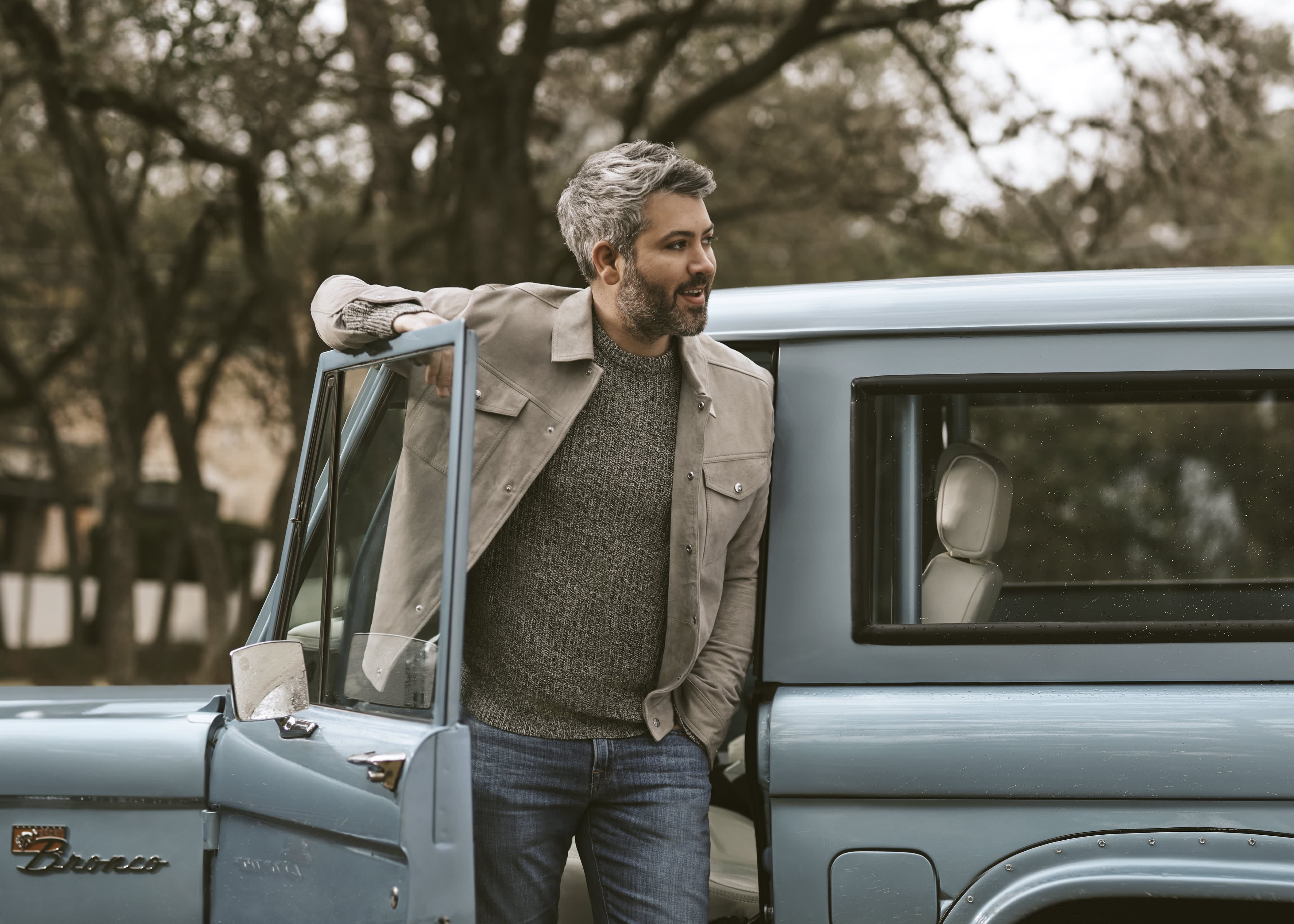At 35, luxury designer Brandon Maxwell already has many prestigious accolades, such as the 2016 CFDA Swarovski Award for Womenswear and the 2016 Fashion Group International Rising Star Award for the identical class. But when we met in New York City in early spring, it became clear that Maxwell—sporting an elegant, all-black suit and ambitious, colorful footwear—thinks of himself as an everyday guy.
Before this shoot, the fashion designer greets me with a warm hug and a massive smile instead of the standard handshake. Then, he courteously introduced himself to me and asked how my day was going earlier than I had the chance to ask him anything. As we sit down to start our verbal exchange, Maxwell’s laid-lower back vibe, type nature, and humility nearly make me overlook that the character sitting earlier than I had dressed a number of the most influential women of all time, specifically Oprah, Meghan Markle, and Michelle Obama. But he’s not wrapped up in their fame. “I’m in reality drawn to girls who’re looking to make a difference,” he tells Bustle while sipping a Diet Coke. “Whether in a small way, inside the way that they could, or in a large way.”

Maxwell himself is making quite a difference in the world. Beyond just growing certainly inclusive runway indicates and having curvy ladies of color — a collection long shunned the mainstream globally style — like Octavia Spencer, Maxwell has long used his platform as his muses to inspire empathy, honesty, and kindness. While they will seem easy to embrace, these tendencies have arguably turned out to be a rarity internationally in which compassion has regularly been replaced with a reduce-throat cancel culture, specifically in an industry as harsh as fashion. However, the craftsman doesn’t want to be cruel with the intention of making his way to the pinnacle, possibly because he is the designer who’s now not worried about centering his work around himself or his ego. Instead, his precedence has always been making women feel excellent.
Born in Longview, Texas, in the mid-’80s, several of Maxwell’s earliest recollections are of perusing his grandmother’s garb boutique as a young infant. “I grew up under an apparel rack,” he remembers. But while a child, these precious moments were not ones the then destiny designer took as a right. When his grandmother would put together clothes to get her clients dressed, Maxwell would carefully examine her every move — noting what objects she might fit with a selected pair of shoes or a particular accent. “I genuinely learned how to be a stylist in that surroundings,” the fashion designer says.
As he grew older, he started to place these learnings into practice, using one of his learnings as his muse. “I could strip my determine’s mattress in their sheets and feature her stand there and drape attire on her,” he remembers, including that he, in the end, might move directly to assist all of his sisters to get geared up for college in the morning. “I am getting that moment of making anyone’s sense visible and unique.”
Maxwell identified that he had an innate preference to work in fashion, leading him to transport to New York City for college in 2003; however, he quickly needed to return to Texas. “I didn’t do very well in school, so my mother and father made me go back home,” he says, giggling. But after graduating on the dean’s list the second time around — while he completed the photography program at St. Edward’s University in Austin — Maxwell returned to New York in 2009, eager to chase his lifelong dream.
When he arrived, Maxwell quickly dove into editorial styling paintings, landing his first gigs with enterprise veterans Deborah Afshani, Edward Enninful, and Nicola Formichetti. Although the Texas native did not take advantage of any formal layout training during this time, it was Formichetti who encouraged Maxwell to start his own women’s luxury line, which would take his career to new heights.
When the eponymous logo came to fruition in 2015, Maxwell’s perennial designs, which debuted at the spring 2016 New York Fashion Week, immediately captivated the fashion international, with Vogue writing that his first collection “sincerely nailed it.” But the inflow of reward, at the same time as well-deserved, changed into still surreal to Maxwell. “I suffered from imposter syndrome,” he admits. “It all [happened] very rapidly.” However, notwithstanding his rapid upward push to achievement, he wants to clarify that he is not without imperfections. “I am extremely mistaken,” he admits. “I even have days which might be a success, and I have days that are huge screw-ups — and those are each pleasant.”





